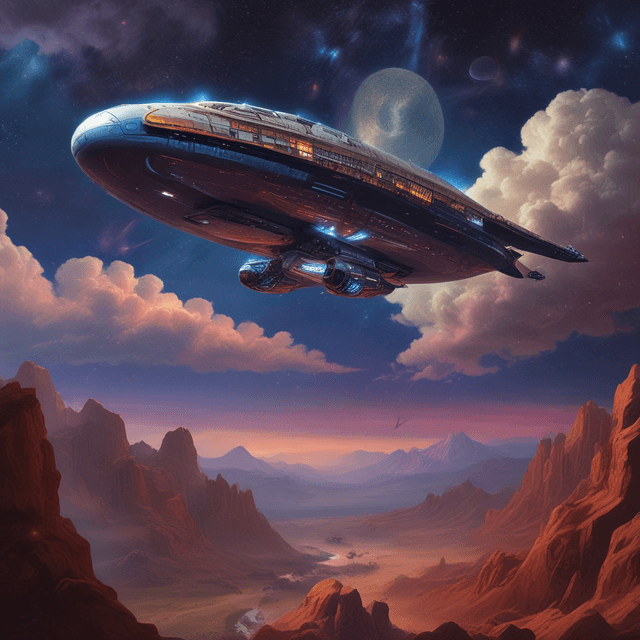
| Genre | Science fiction anthology |
| Title | 'Voyages of the Enterprise' |
| Premise | Exploration of advanced alien civilizations, interstellar phenomena, and existential mysteries of the cosmos |
| Approach | Grounded in realism, with exploration of philosophical questions about the human condition and humanity's place in the universe |
| Networks | North American networks |
| Reputation | Critically acclaimed for intelligent, thought-provoking storytelling |
| Original run | 1959 to 1976 |
"Voyages of the Enterprise" was a science fiction anthology television series that aired on North American networks from 1959 to 1976. While not as iconic or culturally pervasive as the Star Trek franchise in our timeline, the series was critically acclaimed for its intelligent, thought-provoking approach to science fiction storytelling.
Unlike a traditional episodic drama, each self-contained episode of "Voyages of the Enterprise" followed a different set of characters - scientists, explorers, soldiers, civilians, etc. - and their encounters with advanced alien civilizations, interstellar phenomena, and the existential mysteries of the cosmos.
The series was distinguished by its grounded, realistic tone and its exploration of timeless philosophical questions about the human condition, our place in the universe, and the moral and ethical quandaries posed by technological progress and first contact. While it featured spaceships, alien worlds, and futuristic technology, the focus was more on the characters' emotional and intellectual responses to these extraordinary circumstances.
Unlike the heroic, utopian vision of the future portrayed in Star Trek, "Voyages of the Enterprise" presented a more ambiguous, morally complex perspective. Many episodes ended on unsettling or open-ended notes, leaving viewers to ponder the deeper implications of the story.
"Voyages of the Enterprise" was widely acclaimed by critics during its original run, praised for its sophisticated, adult-oriented approach to science fiction television. The series was recognized for its psychological depth, thought-provoking themes, and refusal to provide easy answers.
Many considered "Voyages of the Enterprise" to be a pioneering work that presaged later iconic sci-fi series like The Twilight Zone, The Outer Limits, and the eventual Star Trek franchise. While it never achieved the same level of mainstream popularity, the series developed a devoted cult following and is still regarded as an influential milestone in the development of serious, cerebral science fiction on television.
However, the show's darker sensibilities and refusal to conform to traditional genre tropes also made it controversial in its era. Some viewers and network executives felt the series was too bleak, disturbing, or subversive, leading to its cancellation after 17 seasons despite critical acclaim.
In the decades since, "Voyages of the Enterprise" has been reevaluated and appreciated for its artistic ambition and prescient exploration of themes like first contact, the limits of human understanding, and the existential questions raised by the vastness of the cosmos. It continues to be studied and referenced by scholars of science fiction television and media.
While the series did not spawn the same level of merchandising, media franchises, and cultural impact as Star Trek, "Voyages of the Enterprise" remains an important and influential work that helped shape the development of serious, thought-provoking science fiction on television.